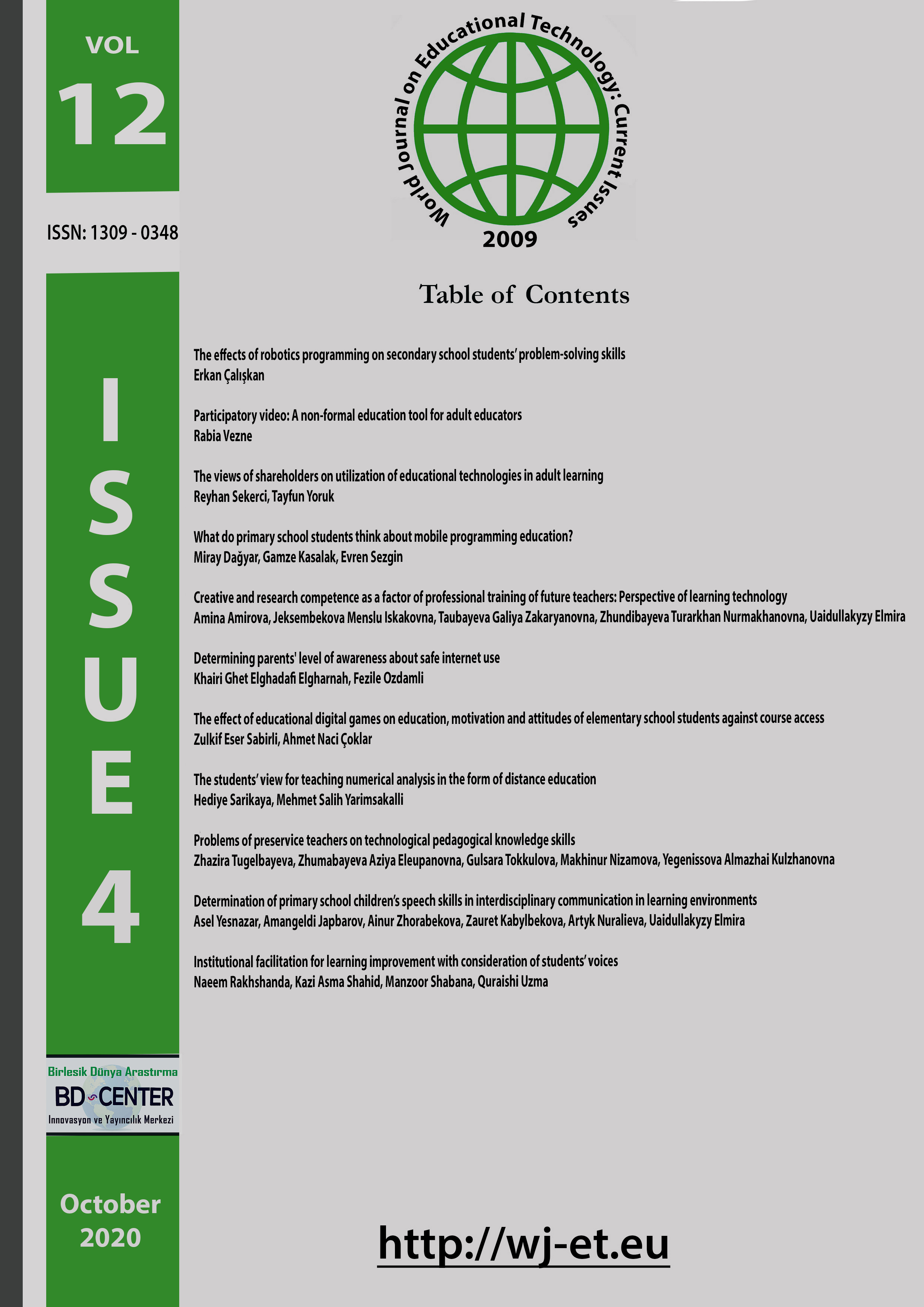The effects of robotics programming on secondary school students' problem-solving skills
Main Article Content
Abstract
Robotics programming is a type of coding that combines mechanics and programming. Robotics technology facilitates coding instruction. Coding improves students' problem-solving skills. However, studies from the literature show that some teaching methods do not have a positive effect on coding skills. The aim of this study is to examine the effects of robotics programming training on secondary school students' problem-solving skills. For this purpose, the study was conducted as a pretest - posttest quasi-experimental model without control group. 30 6th grade students (12 boys and 18 girls) from three secondary schools participated in this study. Activities were conducted with the VEX IQ Robot Kit during nine weeks. Before and after the process, problem-solving inventory and problem-solving skills perception scale were applied as pre- and post-test. As the scores obtained from the scales did not show a normal distribution, the difference between the pretest and posttest scale scores was examined by Wilcoxon signed rank test. As a result of the analysis, it was revealed that robotics programming helped students to develop problem-solving skills.
Downloads
Article Details

This work is licensed under a Creative Commons Attribution 4.0 International License.
World Journal on Educational Technology: Current Issues is an Open Access Journal. The copyright holder is the author/s. Licensee Birlesik Dunya Yenilik Arastirma ve Yayincilik Merkezi, North Nicosia, Cyprus. All articles can be downloaded free of charge. Articles published in the Journal are Open-Access articles distributed under CC-BY license [Attribution 4.0 International (CC BY 4.0)].
Birlesik Dunya Yenilik Arastirma ve Yayincilik Merkezi (BD-Center)is a gold open-access publisher. At the point of publication, all articles from our portfolio of journals are immediately and permanently accessible online free of charge. BD-Center articles are published under the CC-BY license [Attribution 4.0 International (CC BY 4.0)], which permits unrestricted use, distribution, and reproduction in any medium, provided the original authors and the source are credited.
